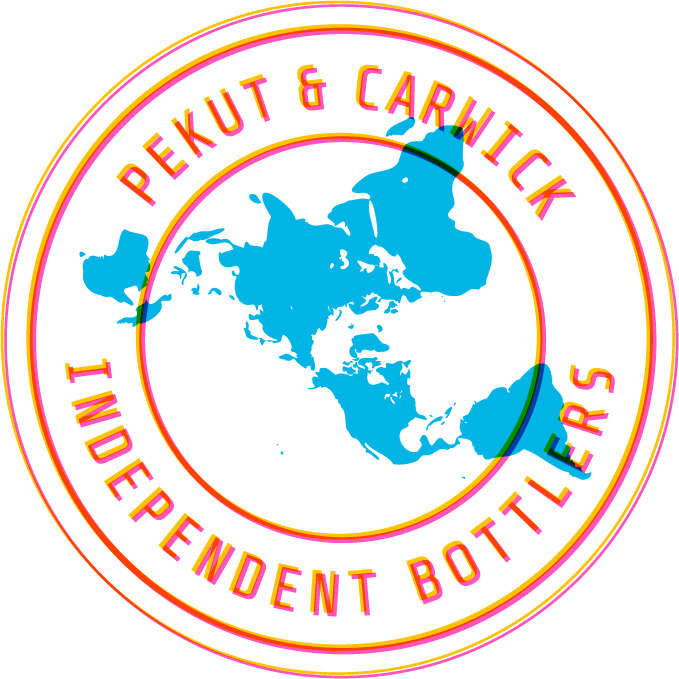Why Independent Bottling?

We occupy a unique position in the distilled spirits industry. We co-brand. We import, blend, bottle, rectify, and distribute. We don't distill, but we work with farmers, fruit growers, and distillers. We even do private label bottling.
We're testing the boundaries of making, marketing, and selling spirits with an eye towards a better industry. That’s why we are independent bottlers.
The wholesale trade in distilled spirits is nothing new.
The first reference to distillation in Scotland is a fifteenth century line item written by the king's accountant for malt to make a few barrels worth of aqua vitae. For centuries, barrels of whisky went to grocers (did you know Johnny Walker was a grocer?) and merchants for bottling under their own brands. Some of these companies are still selling the most interesting Scotch you can get your hands on.
And that's just the recorded history of one spirits tradition, to say nothing of rum's origins in the colonial sugar plantations of the British, Dutch, and Spanish Caribbean, or its eager bulk buyers in colonial and post-colonial North American communities. Or of the Islamic origins of distillation itself, originally for the perfume trade, where alchemy begat modern chemistry.
Today, many spirits brands source their products from very large, very efficient producers. These are contracted or white-label products, where transparency is harder to find. On the other hand, the reputation of an independent bottler is staked on curating and celebrating the product and producer. This is still rare in the industry at large.
We work with spirits that are seasonal, esoteric, or otherwise overlooked
Regulation of distilled spirits also creates another industry rarity: innovation. It's difficult and expensive to get a license and remain compliant under modern laws, so not everyone can do it. But, if you can overcome those obstacles, if you understand the rules and you play by them, you'll find the field wide open for new ideas in sourcing, transparency, and consumer education.
So, while bigger beverage brands excel at sameness—impressive feats of high-volume quality control and supply chain management—we get to be experts in variation. We love to mix things up. Our standards of excellence are the constant, and our product lines and flavor profiles change. When we aren’t researching the best US rums made from domestic cane juice, we’re in our warehouse experimenting with fruit macerations, barrel finishes, and exciting new samples (and writing awesome newsletters).
Sound like fun? It is.
Independent bottling has a lot going for it.
We live in a changed and changing world
In many ways, the history of the wholesale alcohol trade is an analogue for the history of globalization. The very name we give to spirituous liquors ("alcohol" comes from the Arabic "al-kohl") illustrates the intersection of Muslim and European cultures on the Iberian peninsula. Centuries later, Commodore Matthew Perry's expedition to open a new economy for US trade also inadvertently created the conditions for a modern Japanese whisky boom. Today, globally sourced and subsidized refined sugar cane products fuel our raging addiction to cheap, hyper-refined simple carbohydrates.
And so, we get to see less of the raw material supply chain than Friar John Cor and James IV did when they traded their malt. Thanks to Slow Food and other movements, a relatively newfound interest in ethics, sustainability, and quality have inspired us to create entirely new supply streams centering transparency (to sometimes famously lampoon-able extremes). Mostly, we look the other way when it comes to spirits, though.
All beverage alcohol comes from agriculture, despite a confusing popular blindness to the obviousness of that fact. Maybe it's our peculiarly American attachment to the moral and political fallout of Prohibiting "the demon drink" a century ago. Maybe it's the deep pockets and intense infrastructure required to run a distillery.
Whatever the reason, very few people are motivated to ask about where their booze comes from, or how it was made. This leaves broad swathes of the alcohol industry's sourcing and ethics remarkably unexamined by the same folks who might require a certified pedigree for their fish, or their coffee, or their chocolate.
Poking at this cultural blind spot is why we exist. The flexibility, agility, and brand platform that has been the purview of independent bottlers for centuries now allows us to push for a more engaged consumer, a better supply chain, and products we (and you) can get behind.
Want sustainable spirits? Want ethical spirits? Buy Pekut and Carwick independently bottled spirits.
As flavor geeks, we’re on a mission to delight, surprise, and challenge your palate. We don't like being bored. As mostly intelligent humans inhabiting a changed and changing world, we create and distribute products to meet that world.
Come explore with us.

